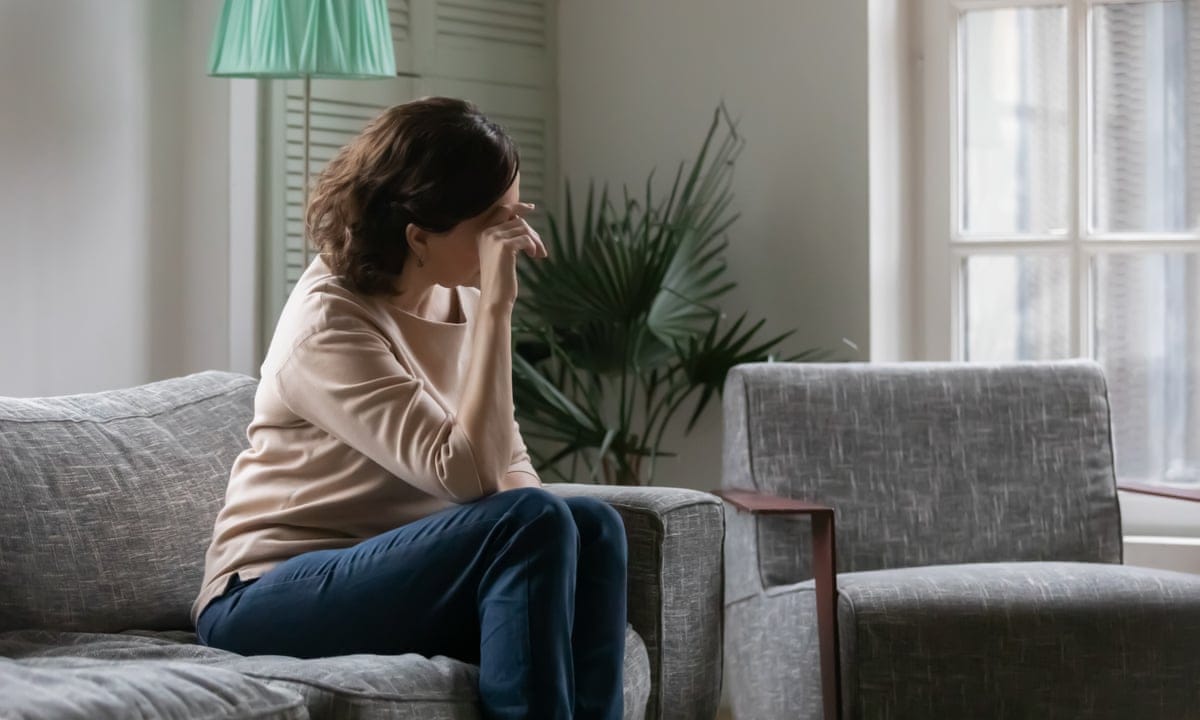When you've spent a significant amount of time dating men, the individuals who care about you will likely propose various theories as to why you haven't found what seems like an elusive shelf mate yet.
"You desire it excessively and that can be off-putting."
"You may inadvertently come across as a friend rather than a potential partner."
"If you were more open to trying new experiences, perhaps your perspective would change."
"The influence of certain films might have shaped your expectations unfavorably."
As these well-intentioned thoughts emanate from those who care about you, it can be challenging not to believe there's something amiss with how you engage romantically. It becomes difficult to disentangle yourself and dismiss the notion that perhaps you are at fault.
You aren't! You're experiencing emotional manipulation. Allow me to illustrate this using personal anecdotes, rather than scientific evidence.
While watching a recent episode of Fake on Paramount+—a series centered around unfortunate romantic outcomes for single women—I found myself visibly affected after a mere 15 minutes. The show's content was so triggering that I promptly paused the screen and tossed my remote aside in frustration.
Birdie, portrayed by Asher Keddie, recounts her unsuccessful encounter with Joe (David Wenham) from Fake: he asked her few questions, brought along a friend, left an undesirable impression on her, and she intends not to see him again. Her mother, Margeaux, played by Heather Mitchell, immediately dismisses Birdie's feelings upon viewing Joe's picture, saying, "He is handsome," adding that one should focus on the positive aspects of a person they date—starting with their physical attributes and working from there.
Unbelievable! It appears as though this scenario unfolds even in real life for actress Asher Keddie! Is it not true that single women over 40 are frequently gaslit regarding their romantic experiences?
Last year, inspired by listening to Barbra Streisand's film "A Love Like Ours," I decided to step out more. However, after four dates with Bobby (an attractive and amiable young man), I found myself eagerly anticipating the prospect of spending time with friends or engaging in other activities rather than attending these dates. By my fourth date, it became evident that despite his qualities as a person, I was not feeling any particular connection to him—and this led me to question whether there might be an underlying issue preventing me from developing romantic interest in someone nice and genuine like Bobby.
One of my closest, long-term partnered friends expressed her frustration with me for not giving Bobby a chance. Why couldn't I allow myself the opportunity to get acquainted with him? Why wasn't she content just being by his side, even if he didn't become everything I had hoped for romantically? Why was it necessary for me to actively seek out positive aspects about him instead of simply acknowledging my lack of interest?
Despite having been in love previously—on numerous occasions—I couldn't help but wonder whether this year would follow the same pattern. Was there a reason why I appeared so disinterested in someone like Bobby, or was it merely an issue with myself that kept hindering my ability to connect romantically?
Against better judgment, my annual endeavor of dating resurfaced thanks to a single episode featuring the character Sam (Ben) from Grey's Anatomy. I went on three dates with Ben—an accomplished, attractive individual who seemed genuinely interested in me. My anticipation for our second date was palpable, and I eagerly responded to his text messages. However, there was no third date, as he wasn't reciprocating my feelings.
Given that I found myself capable of having romantic interest in Ben despite not feeling a strong connection initially, it became clear to me that these experiences are often governed by serendipity rather than any specific criteria or requirements for attraction—a realization which has allowed me to embrace my own feelings and no longer doubt myself.
Read next

Rafael Behr Predicts Starmer's UK Political Realities Will Face Turmoal Shakeup Soon
There's plenty happening politically across Britain, but change isn't sweeping through as expectedly or rapidly enough to shake things up significantly within Westminster news cycles. The government has struggled from its inception and a contest for Tory leadership continues to keep the political scene bustling on

Exploring Historical Solutions for Modern Global Water Conflicts: Insights from a Bygone Spanish Court | Roman Krznaric
Every Thursday at noon, outside Valencia’s cathedral, nine cloaked figures gather beneath its west door – one distinguished by their banded cap and ceremonial harpoon. This weekly assembly marks the enduring presence of the Tribunal de les Aigües (Tribunal of Waters), potentially Europe's oldest court of justice.
For

Potential Deepfake Impact on Future Elections: Will 2024 Mark a Turning Point for Authenticity Concerns? | Samantha Floreani
As long as the phenomenon of artificially generated or altered content depicting false events has existed in politics, concerns have been raised about its implications for public discourse and democracy since at least 2018. This was demonstrated when a deepfake video surfaced that falsely portrayed former President Obama insulting then-President

